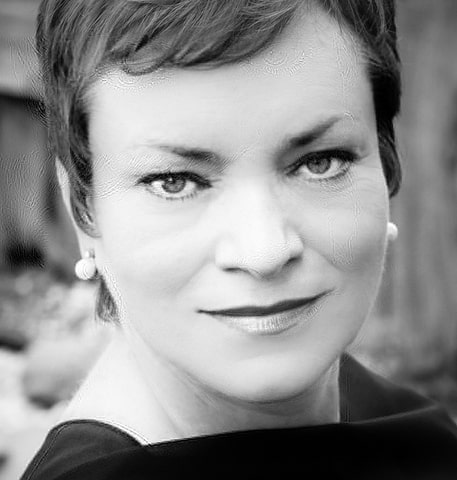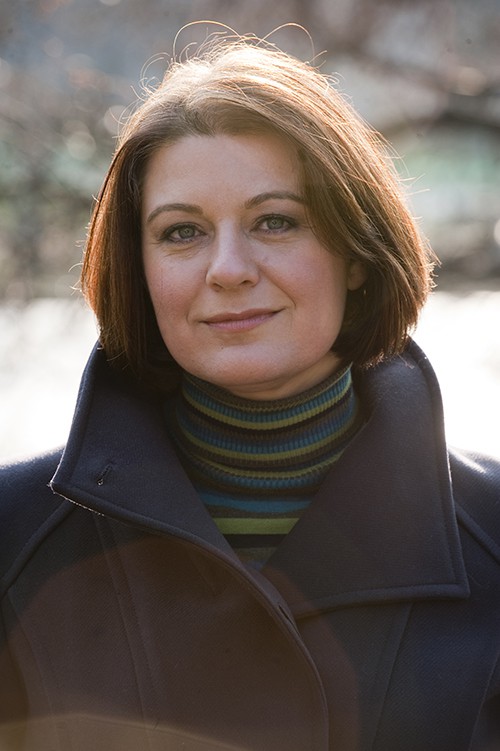
The notion that Vivaldi prolifically penned thousands of versions of the same piece of music is relatively easy to dismiss – especially after the Philharmonia Baroque Orchestra’s performance of Juditha Triumphans. This Vivaldi oratorio (and indeed his only surviving oratorio) is so far from the Four Seasons that you’d never imagine they were by the same composer.
This performance brings so much together: a rare oratorio, a tale from the book of Judith, instruments as varied and colorful as the viola d’amore, viola da gamba, chalumeau, natural trumpets, baroque mandolin (not exactly the instrument Chris Thile plays), and theorbo, stunning singers that we’ve reviewed before (Vivica Genaux and Dominique LaBelle), ones we hope to see again (Cécile van de Sant, Virginia Warnken, and Diana Moore), and a historical background that includes mid-18th century Venetian victory defense of Corfù, a strategically located Greek island in the Ionian Sea. Phew! This incredibly rich performance leaves one’s mind spinning…
LaBelle could sing ASCII code and still make you weak in the knees.
Editors of the Oxford Annotated Apocrypha characterize the Book of Judith, penned in the second century B.C., as “a masterpiece of ancient Jewish narrative art,” whose religious nature is of a “national, legal, and practical type which tends to equate piety with patriotism.”
A hah! This begins to sound suspiciously familiar. Reading closer, we’re told that Holofernes, the general of the Assyrian army, surrounded the Jewish town of Bethula for 34 days, seized the water supply, and tried to starve the Jews out. Judith faces this threat by dolling herself up and going to the Assyrian encampment where she flirts with soldiers who are so awed at her beauty they allow her to meet privately with Holofernes. Over the next week, she works her wiles. Holofernes gets so stupidly drunk, she’s easily able to behead him. Being a smart Jewish girl, she’s made a point of coming and going from the camp to eat her kosher food alone – which provides her with a cover when she and her maid Abra steal away with Holoferne’s head in a sack.
According to program notes, the piece was performed after the Viennese victory in the defense of Corfù. Such a theme made sense because the story of the victorious Judith was widely celebrated, having been the topic of such 15th and 16th century artists as Botticelli, Caravagio, Michelangelo, Gentileschi, Donatello, and others.
Enough preliminaries, however! It’s hard to imagine a time when the Philharmonia Baroque ever sounded better. Even if dramatic oratorios about stories with dubious historical accuracy leave you cold, only the most senseless would not be entirely beguiled by the delicately melodic mandolin solo, the piping chalumeau (a wind instrument popular roughly from 1700 – 1740) and the half dozen other instrumental solos peppering this piece. Opening with banging timpani and bracing natural trumpet, the color commands your attention – and keeps it until the very end.

Vivaldi’s oratorio focused on the two principals, Holofernes (Diana Moore) and Judith (Cécile van de Sant), along with their respective aides, Vagaus, one of Holoferne’s soldiers (Vivica Genaux), and Abra, Judith’s maid (Dominique LaBelle), backed by the Philharmonia Chorale.
LaBelle could sing ASCII code and still make you weak in the knees. Genaux could do the same, all the while convincing you that the most heart-rending drama just taken place. Stylistically, these two are so different – and so excellent – that it makes sense to put them on the opposite sides.
MORE ON STARK INSIDER: ‘Game On’: Bugs take on whole new meaning in Silicon Valley show (Review)
Diana Moore and Cécile van de Sant have more in common stylistically. Both draw their emotional resonance from their full, rich, warm, powerful voices. Pairing these two as Judith and Holofernes made them seem equally matched. Moore’s Holofernes wasn’t a drunken sot, but a worthy opponent. Van de Sant’s Judith seemed quietly conscious of the enormity of the situation. Her change of dress in the second half, with exposed arms, was a reminder of Judith’s dolling herself up in the story.
Titled Vivaldi’s Venice, this concert runs at venues throughout the bay area through April 6th. If you’re even potentially into Baroque vocal music, this is one you want to catch.


